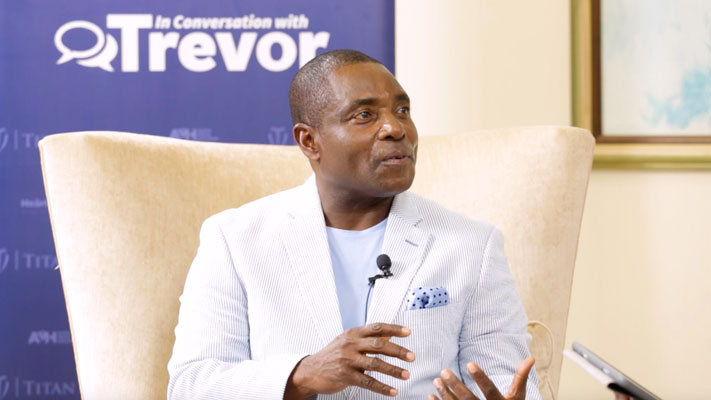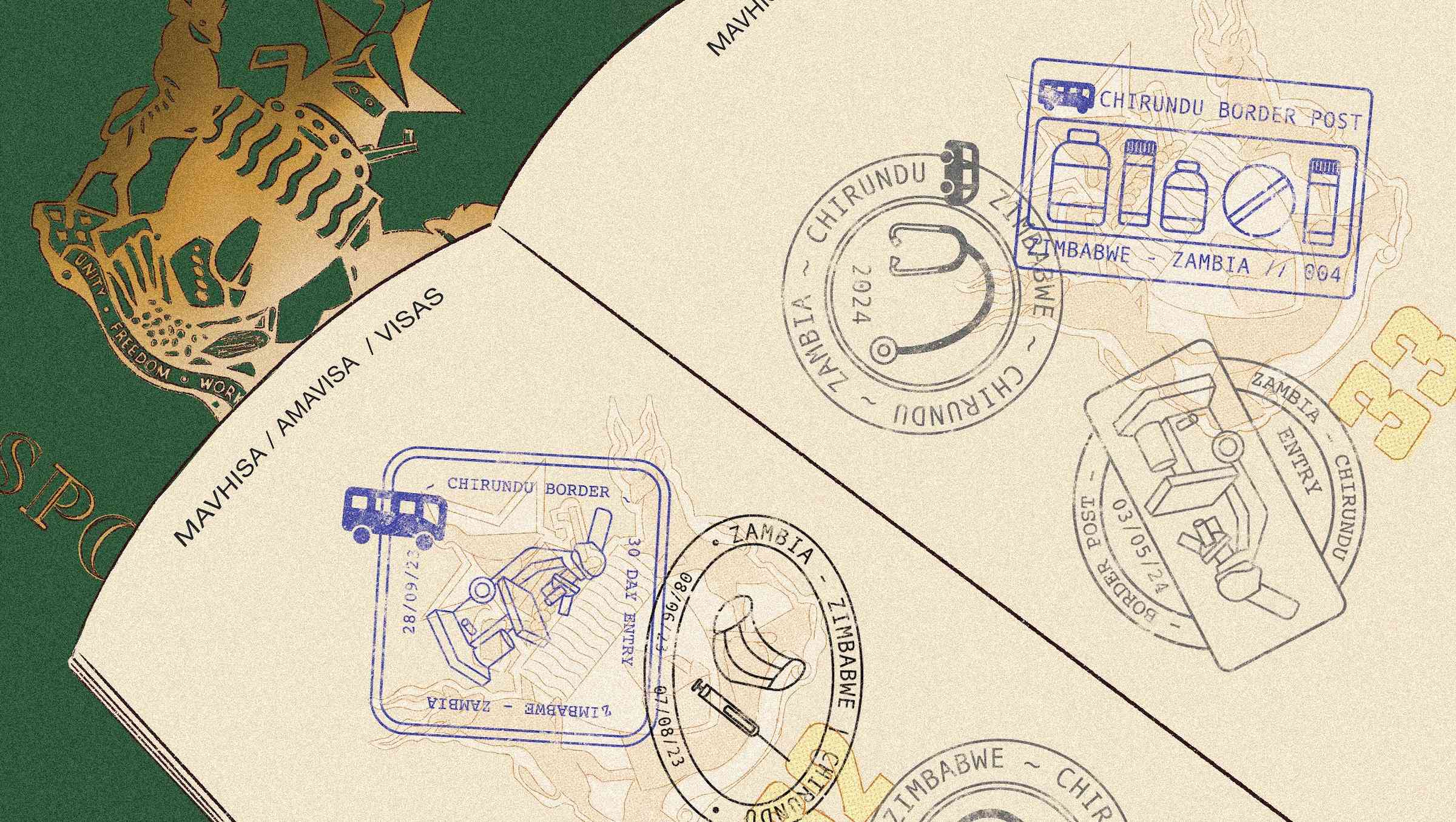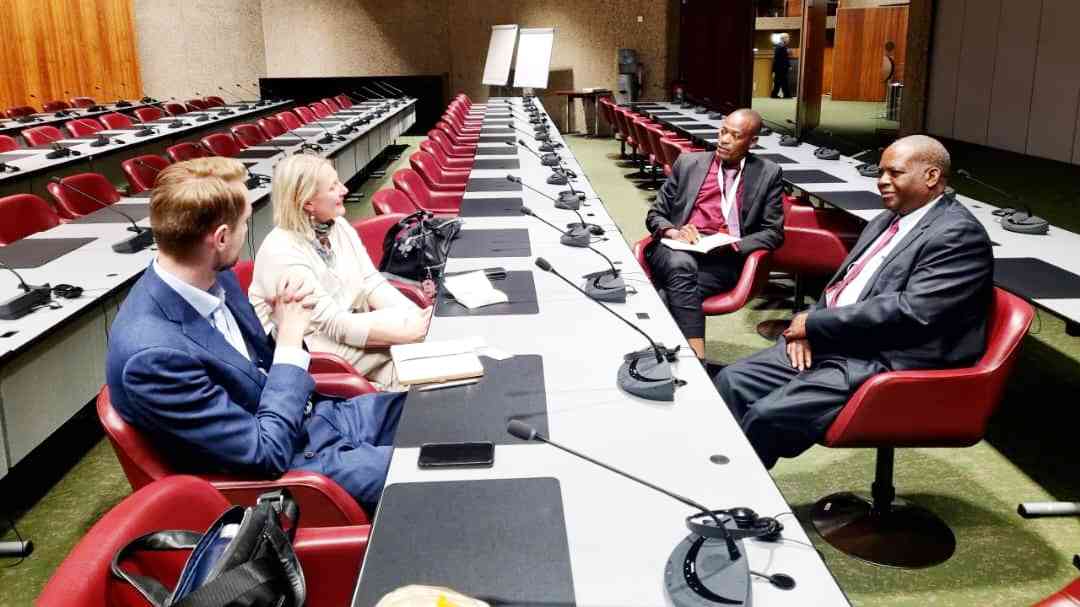
Veteran eye surgeon Solomon Guramatunhu opened up about his life and how he built his brand from humble beginnings when he appeared on the platform In Conversation with Trevor.
Guramatunhu (SG), a philanthropist, told Alpha Media Holdings chairman Trevor Ncube (TN), the host of the show, that his parents were instrumental in shaping his character.
He also spoke about his controversial campaign to discourage women from wearing weaves and other hair extensions. Below are excerpts from the interview.
TN: Congratulations, you have just been awarded a National Arts Merit Award award, talk to me about that.
SG: It was a complete surprise for me. Nobody told me I was going to win anything and the director of the National Arts Council, Nicholas Moyo, just invited me and said you must come.
I had another function at the South Korean embassy, which ended at 21:30 and he said you must come here.
Then I got there sitting down, then when they talked about this award “Service to the Arts”, my name was called out. I had no expectations that I would win anything.
TN: What is it that you have done that has made the arts fraternity give you this award?
- Chamisa under fire over US$120K donation
- Mavhunga puts DeMbare into Chibuku quarterfinals
- Pension funds bet on Cabora Bassa oilfields
- Councils defy govt fire tender directive
Keep Reading
SG: I can only speculate. I have been interested in art since the 90s, as you can see here I have been collecting for quite some time both paintings and sculpture.
I am very interested in first-generation sculptors, but also Dominic Benhura, that is one aspect and because of that I think Doreen Sibanda, the executive director, proposed that I become chairman of the National Gallery of Zimbabwe for five years, then I have been given another five years.
I am also involved with the theatre academy in California, which gives scholarships to theatre practitioners and these youngsters did not have airfares, so thus I started.
One came to me for airfares, I did that. Then the second one, they said create a relationship.
That happened and then, of course, I had my ideas on films and also plays.
We did a play called Coming Home and now we are doing four short movies about things that I am interested in.
TN: You know I am laughing because you are such a busy man and I ask myself where do you get that time to do this, but then I am reminded of someone who said if you want something done ask a busy person to do it. Your life is so busy and hectic, but let us go back to the beginnings, where were you born?
SG: I was born in Nyazura, which is a small town between Rusape and Mutare. I went to primary school at a small school called Zambuko Primary, then for upper primary I went to St Peters again in Nyazura.
I went to Nhohwe Mission in Macheke, we were dependants from Form 1-4, then after that I went to high school in Swaziland at Waterford, which is one of these United World Colleges. I then came back to the University of Rhodesia.
TN: Tell me your experience at Waterford, was there anything you recorded about what is special about Waterford, about the way it affected your life?
SG: Waterford was very special to me because it was truly multi-racial and everyone was there. I remember vividly I was very political in the sense that Mandela’s daughters were there at the same time and our head girl was Lindiwe Sisulu, Walter Sisulu’s daughter.
Although I was doing sciences there were lots of discussions, on politics, political, economic and social systems, and I grew up a lot. And also for me with this background I had, it was the first time to mix with other races and realise you are just like anyone else and there is nothing inferior or different about you, you are just another human being.
The other important thing I got from there was giving back to society, contributing to society as much as you can, I got that from Waterford.
TN: From Waterford you came back, tell me about your education from the University of Zimbabwe.
SG: At the University of Zimbabwe funny, enough at that time in my class of medicine we were about 52 and only about eight or nine of us were black.
It was a trying time, which was, I suppose, when you look back it did help us a lot because we would work extra hard to make it in that scene. I then went to Mpilo Central Hospital to work as a junior doctor.
TN: Then you went to Glasgow after that?
SG: Yes, I went to Scotland, that is where I specialised in ophthalmology and my first love, in fact, was gynaecology and I remember I had a senior registrar from India who is a very close friend of mine today. We called him the chief and up to this day he calls me the black man.
I had a friend from Nepal whom he called the yellow man and one day when we were in a pub and I said you know chief I am still thinking about Robson Gab and he said to me black man I know you so well, you stay above the waist.
TN: I know your parents are very important to you. Talk to me about your upbringing, the way you were raised, the values instilled in you and what your parents mean to you.
SG: My mother was an elderly housewife in the village. A very smart lady with very strong values and she believed in helping everyone, but also instilled that love for education.
Most of my siblings could read and write before we went to school because of my mother.
My father, we could call him a domestic servant, he worked for a Jewish man. They were very close and he was very loyal. I think he joined this man when he was a bachelor, had all his children working for this man and never worked for anybody else except for this Jewish family.
The Jewish man then died and his honesty and reliance to them resulted in the wife getting me into a private school and that is how I got into Waterford.
We became very close until she died in Israel, but what I learned is that when you are very loyal and honest, this is what happens.
Because of that, I was able to help my siblings and my father ended up staying with me.
When my mother died when I was in high school, I took my father and he stayed in this house with me for 15-20 years and he actually died in this house.
TN: Let us go now to your passion, Dr Guramatunhu, which is as an eye specialist, you studied at Sekuru Kaguvi Hospital, you equipped it and you work there, just brief me about that experience.
SG: I came back in the early 90s and we were really primitive.
We did not have operating microscopes and proper instruments and when I look back it was exciting for me to have this challenge and I had this opportunity to build a department, a tertiary centre where we brought in lots of equipment and I was working with friends from the States and it was called Surgical High Expeditions.
The men I worked with, Harry Brown, who was the founder of this organisation based in Santa Barbara.
We became very close. He came to visit us here four times, but we were able to bring equipment. We also worked with other organisations.
I applied to San Francisco Lions Club, I addressed them and we would go to Amsterdam and meet the Lions, so we were able to bring this equipment.
TN: That is for building Sekuru Kaguvi?
SG: Yes. After that we were able to offer more services like we started doing modern cataract surgery, putting lens implants and we started transplants and we also worked with the Desert Foundation, which helped us to bring corneas, etc.
We began to do laser and the first laser in this country came to the hospital at that time in the early 90s for diabetics.
It became obvious we had to start a training programme for eye specialists.
TN: That is why you went for Eyes in Africa, this was another project?
SG: Yes, the first was the training. A training programme must have enough knowledge and I remember vividly the first students I had were all foreigners, six of them.
TN: Why, no local interest in ophthalmology?
SG: People did not have anyone they could look up to or emulate. It was not there. So it was foreigners who realised that it was a good thing. I remember we had students from Ghana, DRC, Zambia, Tanzania and Malawi, but no Zimbabwean.
TN: You got the project started?
SG: Because it was feeling static and my job at that moment was to market ophthalmology on TV, talking about eyes etc. Slowly Zimbabweans started to apply for ophthalmology. Eyes for Africa was different, the idea was to help poor people in the rural areas who could not afford treatment but are blind from cataracts, so that we could offer free surgeries and we felt we always looked outside America or Europe to help us.
We could know with help from our side but the membranes should help our own people.
I am grateful because this project took us everywhere — be it Kariba, Chipinge and Mutoko, we went everywhere in this country.
Not only that, we operated with colleagues in Zambia and went to Namibia.
TN: Do you have an idea of how many people you have touched?
SG: Thousands and I am not sure by now not what I did, but what other colleagues have done in the programme, we saw about 50 000 because we have done a lot.
TN: The doctors that you have trained, do you have any number?
SG: I was checking the figure the other day and they were about 35 to 44. I read there are 15 on the programme and it is quite a number now and some have left the country.
TN: You have built a very successful business in terms of the eye centres that you have got. Talk to me about the challenges of building that, finding the funds to invest into the business, building the business and the brand that you have become in this area.
SG: Some things just happen in this life and I feel sorry for the young doctors now because during the 90s when we started practicing, the economy was doing very well and it was easy to even self-fund to develop.
TN: Which is what you did?
SG: Yes, and now it is a bit different because things are a bit tough for youngsters. So maybe you and people like me we could get the youngsters to come and join us and that they also talk about some of the things that we do. This just happened, to be honest.
TN: You have been going on now for some time about five years that black women should appreciate their hair and not buy wigs. Why?
SG: How this started was I was walking in town and I saw our ladies slapping and scratching their scalps and I observed that other races do not do that. I asked the girls in my office and they said it is the weaves, they are itching. I said educate me, what are these weaves.
They said there is 100% human hair, which is Indian, Brazilian, Peruvian etc, which is quite expensive, and then there is the cheaper stuff,the synthetic fibres made by the Chinese and Koreans.
I travelled to several of these countries several times and when I was in India, that is when I discovered that if we are family and we lose a member of the family all the ladies in the family go to the temple where they worship, have all their hair shaven off and that hair is a sacrifice to their gods.
What hit me personally is that I saw those homeless people, their hair was being shaven off and some people had sores in their scalps because when they were being shaven off, they were bleeding.
I said to myself what is this? How did we black people end up in this space where we buy this and pay United States dollars for this?
To make it worse, when the hair is cut off, it falls on to the floor, then we have people putting it into heaps and sorting it out, removing worms and lice. And that day I said to myself, no there is something not right with us paying for this.
I was flying back and the thing was playing in my mind, when we grew up there were no weaves, so how did this start, who started it and who told the black lady that you are not beautiful, to look this beautiful you must wear this thing?
I said if we go to restaurants and we have expensive food and when eating the food we find human hair in there, we will not take it because it is contaminated.
If you and I go to Nyari’s mother and say we are here, we want to shave each other’s hair, can we do it in your kitchen, she will say no because hair once shaved off is dirt, you throw it away.
TN: People will say this hair gets washed and there is a manufacturing process that gets it cleaned and packed nicely. Does your point still stand?
SG: Yes it does. I was speaking to a trichologist, someone who specialises in hair. He said hair does not die, it is alive. Someone commits a crime here, they leave a piece of hair even 25 years later we can catch that person because of the DNA in the hair.
The trichologist told us that if hair is in touch with another tissue there is exchange of genetic material and people do not know this, which means people who are gluing and stitching the hair, there is exchange of genetic material. They don’t know what they are getting. It might not show in that individual, but in grand and grandchildren.
There are three sources of this hair: live people, dead people and these fibres.
I have a patient, Mr Makuni who owns a company in Waterfalls, we talk about this openly and he does not mind me mentioning his name.
He was in town on business and he says I get there and find that ladies who die in Taiwan just before burial the hair is shaved off then they immediately get buried.
He said they showed me a big warehouse full of that hair and he said what are you doing with this hair of people who have just been buried and they said black people love this hair.
This is big business, we are making billions of dollars selling mostly to black people who are our biggest market.
Just to think of it for a moment, a lady comes in here and she has this hair because if you ask ladies with the expensive natural hair, if you say to them is this hair from a dead person or a live person they do not know.
This hair, it will fall off in here, in the bathroom, kitchen etc, these dead people’s hair.
We do not know what those people died of, what disease was running in their family and remember it is not just about hair, it is about hair and skin.
l “In Conversation With Trevor” is a weekly show broadcast on YouTube.com//InConversationWithTrevor. Please get your free YouTube subscription to this channel. The conversations are sponsored by Titan Law.










